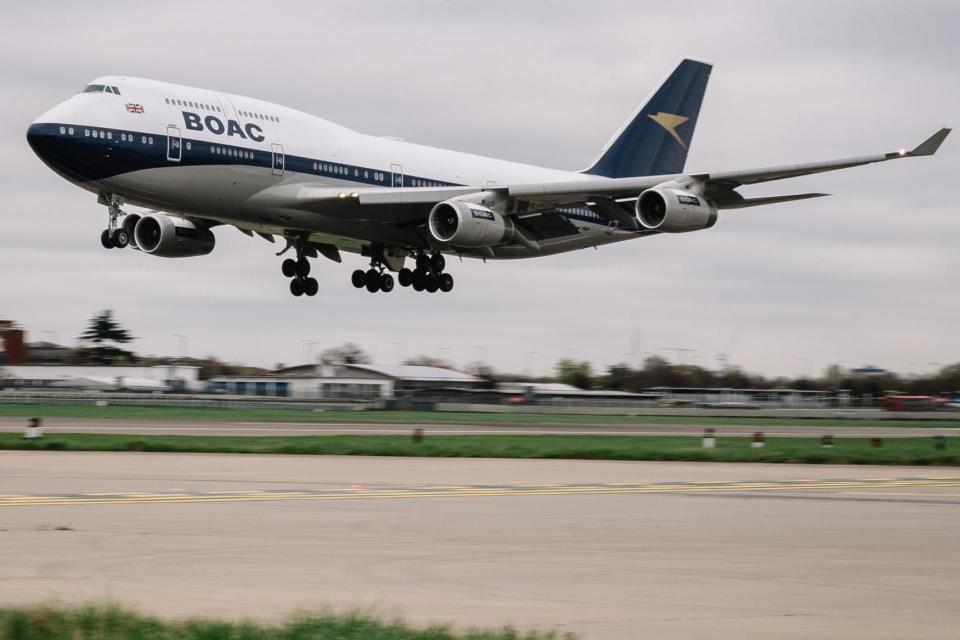Is it cheaper to buy long-haul flights at the last minute?

Khalid has family in the United Arab Emirates, and a family-sized problem: “I normally fly to see them in Dubai for a fare of £330-400 for a direct return flight.
“But for the Christmas and New Year break the best I can see, travelling out on 21 December and back on 2 January, is about £1,000 return.
“So my question is: do the airlines sometimes drop the prices a day before the flight? I'm thinking of waiting and booking a day before or on the day of the travel.”
Wait a moment and I shall address Khalid’s question. But first, go back three or four decades, when there were actual proper standby fares, and for me and many others buying on the day was the only way to go.
It all began with Sir Freddie Laker’s Skytrain operation, which between 1977 and 1982 democratised transatlantic travel. The entrepreneur’s low no-frills fares from Gatwick to JFK forced the traditional airlines to cut their prices. But rather than cannibalising their revenue, they put in the sort of restrictions that “normal” passengers would not tolerate.
The magnificent BOAC building in Buckingham Palace Road in central London, an art deco masterpiece that now houses the National Audit Office, became the temporary target for the masses in search of America. The queue would form hours before opening time, because the first few dozen travellers were more or less guaranteed a seat that day on one of the three daily British Airways New York-bound Jumbo jets.
The rest of us who had not started so early would take whatever was left, often a trip a day or two later. Or simply hear that the week’s allocation had been sold out, and we should try the following week (whereupon there was a scramble for Piccadilly, where the less popular TWA office was located).
Thirty winters, indeed, Virgin Atlantic had probably the best standby deal ever – at least relative to the painfully high fares at the time, paid by people who preferred to know they would be travelling.
Richard Branson’s airline was trying to fill otherwise empty seats between London and New York for £89 outbound and just $89 inbound – which, at the prevailing rate of exchange, meant a transatlantic trip home from the US for under £60. The strings attached involved committing upfront by buying a standby ticket – effectively a voucher – and then calling up every day until there was room on a flight.
Soon, though, the airlines realised that they were doing it all wrong: they could sell six tickets at (say) £100 to uncouth youth like me, or one ticket at £600 to someone who was desperate to travel.
Besides, Laker Airways had gone out of business, and the successor challenger, Virgin Atlantic, was largely competing on quality rather than price.
So the standby disappeared from the long-haul air market – apart from some odd quirks such as the KLM day trip to the US, where the Dutch airline told you at the last moment which American city you would visit (I won Houston).
But in time the UK, and in particular London, has grown into the world capital of aviation. Certainly for any trip to Australia, booking more than a day ahead is unnecessary. I’ve just checked Heathrow-Sydney for tomorrow and have a range from £677 return on United via, interestingly, Houston, followed by £727 on Malaysia Airlines and (probably best value) Cathay Pacific via Hong Kong.
That is because almost any airline based in North America or Asia can offer a trip to Sydney, and with London’s insatiable demand it’s a good way to fill up the last few seats for a few pounds.
But to Dubai, it is trickier. Plugging in the same departure tomorrow, I’m getting quotes of £400 return on British Airways – good value for a nonstop, but I fear it will not last until Christmas. Particularly, I’m afraid, Khalid, for the last Saturday before 25 December and the day after New Year’s Day.
But what might work is stringing together a couple of low-cost flights. Wizz Air has an outbound tomorrow of just £137, involving a late departure to Budapest and connection to Dubai’s “other” airport – World Central. That will be more expensive in a couple of weeks, but hopefully not horribly so. And the inbound journey? You’ll have to take your chances. Just as the standby traveller has always done.
